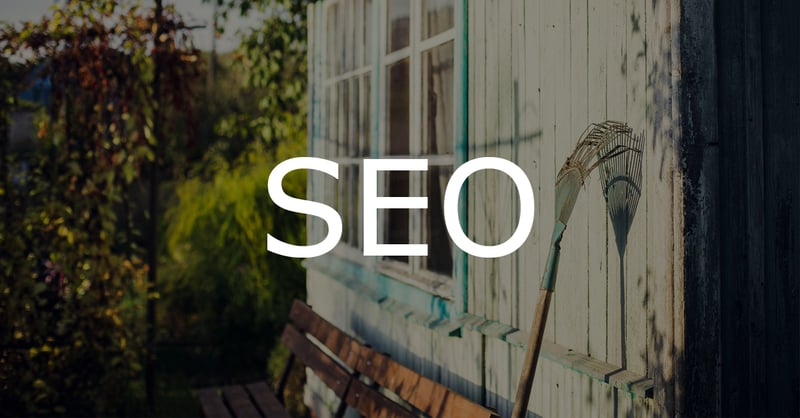 Whenever a story with advertising ties makes major headlines, it can usually be sorted into one of two buckets. There’s a tendency to focus a lot on the creative parts of our industry – the actual making of the ads – which makes sense, because a lot of people watched Mad Men and realized that’s where all the fun happens.
Whenever a story with advertising ties makes major headlines, it can usually be sorted into one of two buckets. There’s a tendency to focus a lot on the creative parts of our industry – the actual making of the ads – which makes sense, because a lot of people watched Mad Men and realized that’s where all the fun happens.
But there’s also the more technologically inclined slants, like when AdAge proposes how the blockchain will save agencies, which can also be fun in a different, catchphrase-of-the-day kind of way. They’re not mutually exclusive; both of these camps are able to coexist in harmony. Anyway, my point is that the marketing journalism industrial complex lacks range.
This two-pillar approach leaves a lot of gray area for the fringe niches in advertising, like local SEO. Sure, as a marketing discipline, it's important for the average business to be easily found online. But, in practice, local SEO is mind-numbingly tedious and about as exciting as tax preparation. Not a lot of big-budget shoots or cutting-edge advancements going on in the world of local. It’s an unfortunate reality that comes with the territory, I suppose.
That’s why I was thrilled to see an actual, real-life headline recently making the rounds with implications that could be conceivably deemed local SEO-ish. I don’t care if it’s a reach – just let me have this.
I made the shed I live in London's top-rated restaurant on TripAdvisor. Then I actually opened it. Ladies & Gents, after months screening phone calls from begging customers, eat it up: The Shed At Dulwich https://t.co/LnvUB9WRwc @viceuk @vice
— Oobah Butler (@Oobahs) December 6, 2017
Oobah Butler, a writer for Vice UK, successfully convinced TripAdvisor (and the city of London as a whole) that his backyard was a critically acclaimed restaurant. Not only did he succeed in keeping the guise afloat for six months, he actually made it to the No. 1 spot...out of 18,092. For a fake shed. Well, real shed, fake restaurant. You get the point.
Butler’s backstory for the shed was nothing more than a website and a burner phone. He rose through TripAdvisor’s ranks was by asking his friends to write glowing fake reviews – something he had done for a living in the past at a rate of £10 each. People went crazy for the place after seeing these rave reviews from ostensibly happy diners, but weren’t able to get a hold of the place to book a reservation.
There’s a whole meta-commentary to be had about how this could only happen, as Butler himself puts it, “within the current climate of misinformation, and society’s willingness to believe absolute bullshit.” I’ll leave that kind of posturing – the "what does the shed say about us?" takes – to other folks. I, on the other hand, am more concerned with how much it must suck to work in the world of British restaurant SEO right now.
Somewhere out there, I like to believe, is a poor lad fielding calls from pissed-off pub owners wondering why they’re paying him £250 a month to “manage their online presence,” only to be gamed by “that kid on Good Morning Britain with the shed.” Small business owners are notoriously skeptical of online reviews and their adjacent rankings, with much of that hostility aimed squarely at Yelp (it’s unclear if Yelp deserves this or not, but that’s a topic for another day). This stunt adds a mountain of fuel to that fire.
After the shed was revealed, Butler contacted TripAdvisor to see what they had to say about the whole ordeal. The response is curious:
"As there is no incentive for anyone in the real world to create a fake restaurant, it is not a problem we experience with our regular community – therefore this 'test' is not a real-world example...most fraudsters are only interested in trying to manipulate the rankings of real businesses."
There’s also a link to YouTube included, because it’s 2017 and everything is short-form video. Notice the slight misdirection that’s going on here. TripAdvisor’s bone to pick is with the human element – Why would anyone want a fake restaurant? – but not the review algorithm itself. The omission seems to indicate that TripAdvisor is well aware its algorithm might work TOO well (or not at all, depending on how you cut it). After all, the algorithm can’t walk the streets and confirm whether restaurants are real or not. That’s left to the lazy humans. Like any good algorithm, it’s a matter of crap in, crap out.
It’s a relief to hear of a story like this at a time when everything is so interconnected that even our juicers are Wi-Fi enabled. I’m not necessarily advocating that anyone go out and start shamelessly reviewing stuff. I do think, however, it’s telling that even a review strategy as benignly simple as the Shed's can lead to the top of a daunting list like “London’s Top Restaurants.” Most importantly, it’s a reminder that no matter how avant-garde advertising may get, one can always count on local SEO to remain entertainingly dull.




